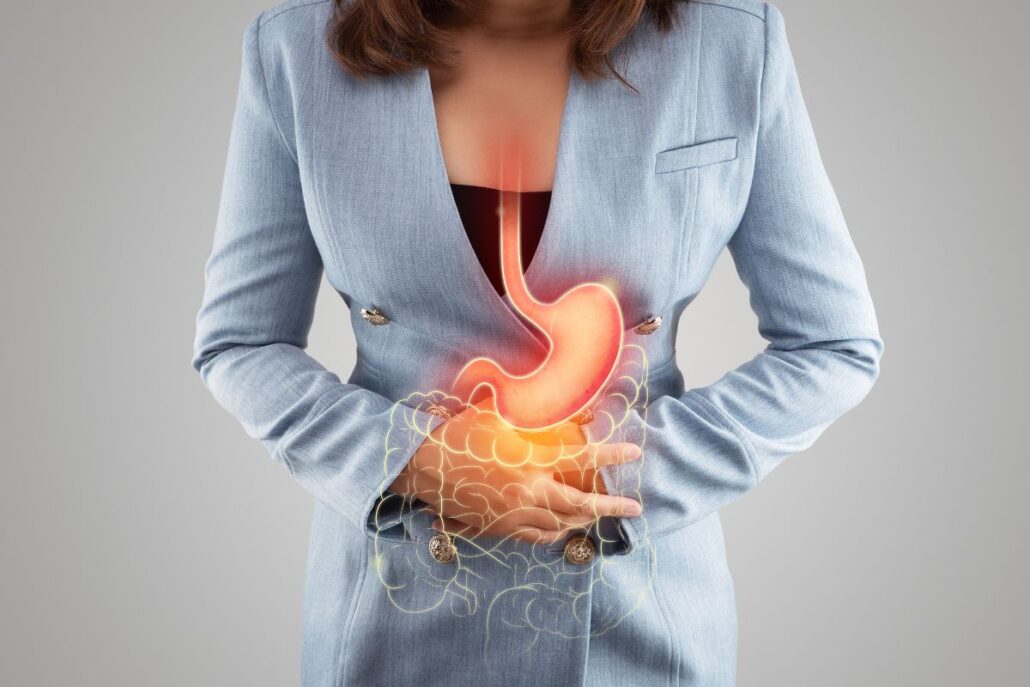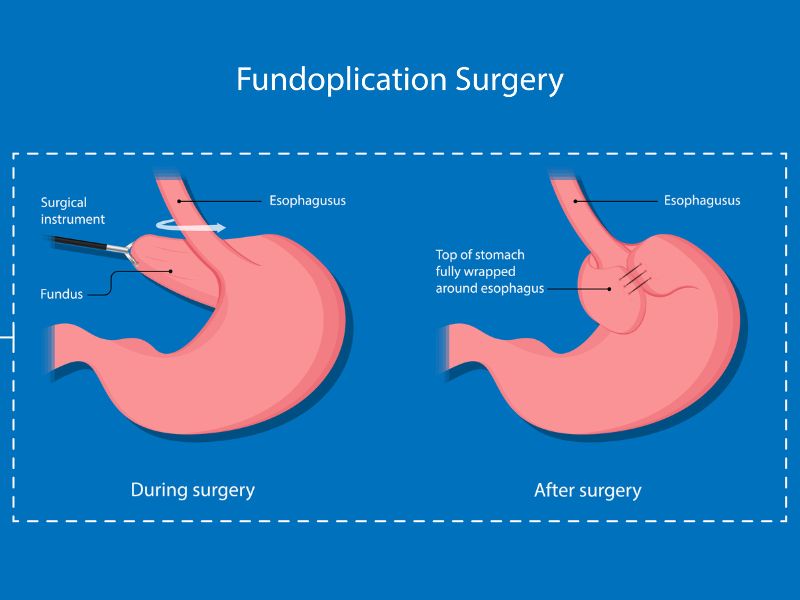
GERD Treatment
Gastroesophageal reflux (GERD) happens when acids from the stomach come back up into your esophagus, causing an unpleasant burning sensation in the chest, voice box, throat, and mouth. Acid reflux is common but not always easy to recognize or treat.
What is GERD?
The backflow of stomach juices, including acids and occasionally ingested foods, constitutes gastroesophageal reflux disease or GERD.
GERD Symptoms
Common esophageal symptoms of GERD include:

Approximately 20% of U.S. adults experience GERD symptoms. Contact Penn Medicine Becker ENT & Allergy for expert care.
What is the relationship between GERD and sinusitis?
Dr. Kenneth Rosenstein, MD, Our Otolaryngologist, Discusses GERD and Its Impact
Sometimes, the symptoms of GERD can mimic some of the symptoms of sinusitis. The sensation of post nasal draining and the need to clear your throat constantly may be due to post nasal drip — but may also be due to GERD. The sinus specialist may therefore examine you in the office to see if there is physical evidence of GERD.
What causes GERD?
How do you diagnose GERD?
Are there any diagnostic tests?
How is GERD managed?
There is a one-way valve near the top of the stomach, this is because, ideally, things should go from the esophagus into the stomach and not the other way around. Stomach acid can escape through a weakened valve and travel up the esophagus — even up to the voice box and throat — and produce the symptoms listed above.
Heartburn is easily recognized by the family doctor. However, some of the symptoms relating to the throat and voice box should be evaluated by a specialist. The specialist will then perform a complete examination, including taking a look at the voice box with a small endoscope placed through the nose. If you have GERD, your sinus specialist may ask you to also see a gastroenterologist.
To evaluate GERD, additional tests may be ordered (or performed) by a gastroenterologist, such as a Barium swallow to monitor dye as it moves through the stomach, a PH monitoring test to record 24-hour acid reflux, and Endoscopy to check for esophageal damage and stomach irritation or ulceration.
Laryngopharyngeal reflux (LPR) is a type of GERD that causes stomach acid to travel up into the throat, larynx, and pharynx. This acid can cause sore throat, hoarseness, coughing, and difficulty swallowing. Treatment includes dietary changes, medication, and surgery. Consult with a doctor to find the best plan. Relief from GERD is most commonly achieved through lifestyle changes and/or medical treatment. Surgery is available for refractory cases.
Secure Your Safe Treatment Experience with PennMedicine
Join our satisfied clients who’ve experienced safe, effective treatments.
Best Lifestyle Changes for GERD Relief

Dietary Modifications
The Best Foods to Manage and Prevent Acid Reflux
You may wish to avoid coffee and tea, carbonated beverages, alcohol, fatty fried foods, spicy food, citrus fruits and juices, tomato juice, orange juice, grapefruit juice, tomatoes, onions, peppermint, spearmint, chocolate, cheeses, and eggs.
Avoid large meals, especially in the evenings. Do not lie down right after eating. Allow three to four hours after supper and lying down. Make the mid-day meal the heavier meal of the day and eat small, well-balanced meals.
Medical Treatment for GERD

Medical treatment for GERD aims to neutralize or reduce stomach acid and improve gastric emptying. Neutralization can be done using over-the-counter antacids like Sucralfate suspension, Maalox, and Ryopan. Acid reduction can be done with H-2 blockers, such as Cimetidine, Ranitidine, or Famotidine. Lower doses are also now available over-the-counter.
Antacids and H-2 blockers should be taken one hour apart as antacids may reduce the other drugs’ effectiveness. New drugs like Omeprazole (Prilosec) and Nexium completely stop stomach acid production. These drugs are generally prescribed for short-term use.
Improving gastric emptying can be undertaken by Cisapride, Metoclopramide, Bethanachol, Proton pump inhibitors (PPIs), and other drugs. These drugs increase the squeezing action of the esophagus and tighten the esophageal sphincter, in addition to making the stomach empty faster.
You should discuss your condition with your healthcare provider prior to starting medication for GERD.
Schedule your consultation
Surgical Treatment of GERD
Surgery is a last option if diet and medication don’t ease GERD or the patient has difficulty following them. “Fundoplication” is a surgical procedure that wraps the stomach around the esophagus to reduce reflux. It’s better to opt for medical treatment if possible to control GERD.


Pick one of our convenient locations
for your GERD Treatment

